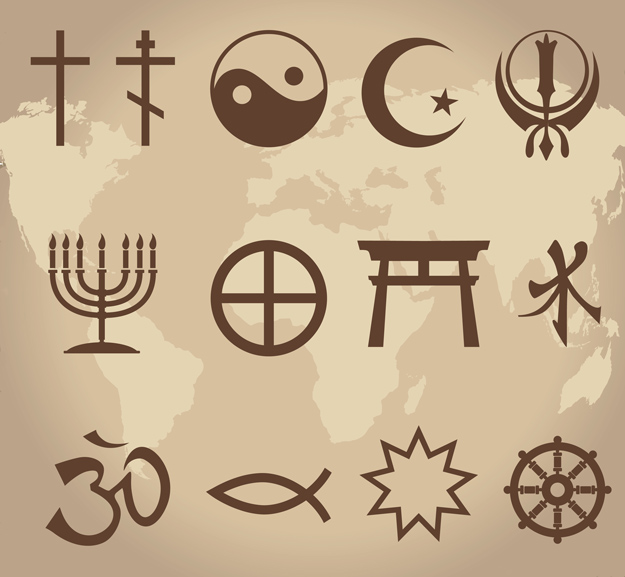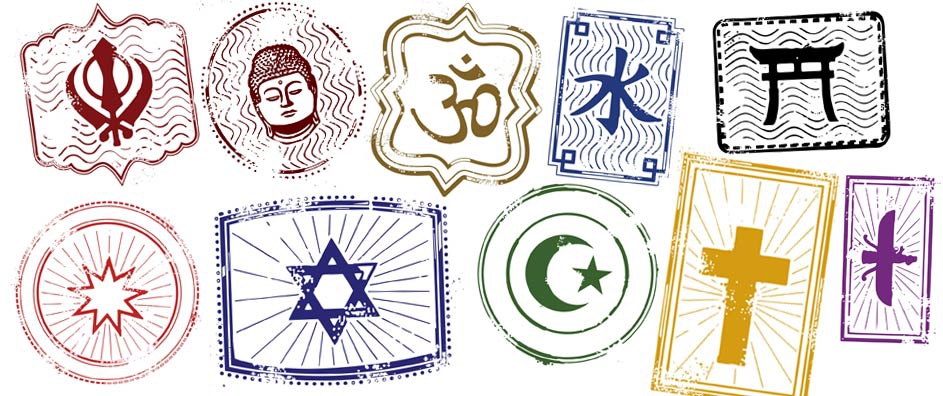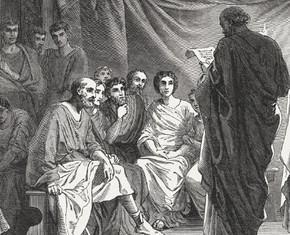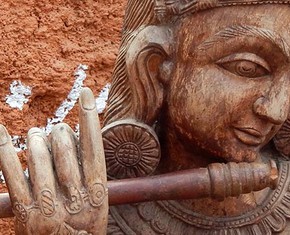The views expressed in our content reflect individual perspectives and do not represent the authoritative views of the Baha'i Faith.
In his mission to bring about the reconciliation of all the world’s major religions, Baha’u’llah suffered enormously at the hands of the Islamic authorities of his time. Despite exile, torture and forty years of imprisonment, he never wavered in his quest for unity.
In doing so he broke with Muslim tradition and with the common Muslim understanding of the testimony of the Qur’an itself. Notwithstanding this radical stance, he quoted from the Qur’an and the Islamic hadiths in the very same documents that featured passages from the New Testament, and often side by side. He cited many verses from the Gospels, pointing out that they prophesied the appearance of the prophet Muhammad, thereby affirming that Muhammad was the return of Jesus and the coming of the Son of man in the glory of the Father.
Honoring all the major Faiths, he saw them as one Faith.
While a Muslim apologist might have cited such Gospel passages in order to convince a Christian to embrace the Faith of Islam, Baha’u’llah quoted these excerpts in order to establish the truth of progressive revelation, one of his key teachings. He cited Biblical passages to bring about the reconciliation of Christianity with Islam, and to begin to prepare the world to recognize him as the promised one predicted by the Bab in his writings—and by the previous prophets in their scriptures.
 However–this unifying mission did not impede Baha’u’llah from being critical of Christian clerics when they rejected Muhammad and the authenticity of the Qur’anic Revelation. In his writings he and his son and appointed interpreter Abdu’l-Baha resolutely reprimanded Western civilization for failing to recognize the spiritual culture of Islam. Furthermore, Baha’u’llah denied the truth of various cherished Christian dogmas and doctrines, particularly those that identify Jesus as the incarnation of God, and all other prophets as essentially inferior to him.
However–this unifying mission did not impede Baha’u’llah from being critical of Christian clerics when they rejected Muhammad and the authenticity of the Qur’anic Revelation. In his writings he and his son and appointed interpreter Abdu’l-Baha resolutely reprimanded Western civilization for failing to recognize the spiritual culture of Islam. Furthermore, Baha’u’llah denied the truth of various cherished Christian dogmas and doctrines, particularly those that identify Jesus as the incarnation of God, and all other prophets as essentially inferior to him.
How successful was Baha’u’llah’s attempt to reconcile Christianity with Islam? Probably over a million Baha’is in the West come from among Christians of various denominations–and in the very process of becoming Baha’is they have accepted the prophethood of Muhammad and the divine inspiration of the Qur’an. This impressive accomplishment happened despite the fact that few Christians appear to have voluntarily embraced Islam, either during the lifetime of the prophet Muhammad or for hundreds of years afterwards.
Baha’u’llah’s reconciliation of Islam with Judaism and Christianity seems even more miraculous, considering the thousand years of assumed superiority over these peoples of the Book. Baha’u’llah does not merely quote from the Qur’an in many of his writings, including those that cite liberally from the Hebrew prophets and the New Testament. He also denies that revelation has ended with the prophet Muhammad, citing many passages from the Qur’an itself that contradict such a dogma. He calls into question the legitimacy of the doctrines of the vast majority of Muslims, who he characterizes as having strayed far from the pure faith of Islam.
He cites his deep disapproval of the killing of the Banu Qurayza, the Jewish tribe in Medinah, traditionally seen as a decision taken by the elder followers of Muhammad and with Muhammad’s permission and tacit approval. He says that the religion of God has always sought to bring about peace and unity, thereby contradicting the Qur’anic texts advocating armed suppression of religions other than Islam. Baha’u’llah also contradicts those Qur’anic texts that prohibit friendship and fellowship between Muslims and people of other Faiths. He says that all religions are in agreement, calling into question traditional Muslim hostility towards Jews for “worshipping Ezra” and Christians for their belief in the Trinity–teachings which are both found in the Qur’an.
In fact, Baha’u’llah redefines Islam, on his terms, as a religion that teaches unity and peace; confirms and expands upon Judaism and Christianity; and signals a step forward for humanity after the appearance of these earlier prophetic faiths. He regards true Islam as having guided faithful Muslims to a close relationship with God and a superior pattern of ethical behavior.
So powerful is this call to reconciliation that Baha’is have sought to further extend this principle to include many religions not mentioned by Baha’u’llah. Following in the footsteps of Baha’u’llah, Abdu’l-Baha declared that Buddhism, Hinduism and Zoroastrianism were also called to reconciliation with one another and with the other world religions. Some Baha’is in India have suggested that Rama also be regarded as a Manifestation of God, and other Baha’is in America have suggested Quetzlcoatl (from Mexico), Deganawida (from North America), and other Native American prophets for inclusion in this universal religious reconciliation.
While some would close the canon, others believe that the canon of religious reconciliation will continue to expand indefinitely. That seems to be Baha’u’llah’s intention.
















Comments
Sign in or create an account
Continue with Googleor